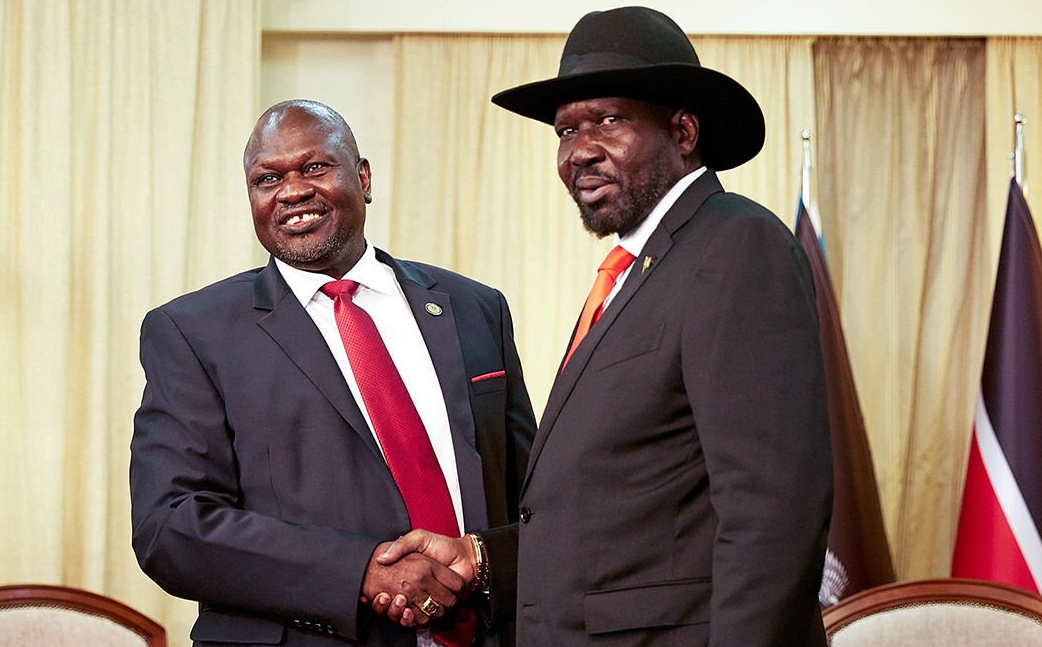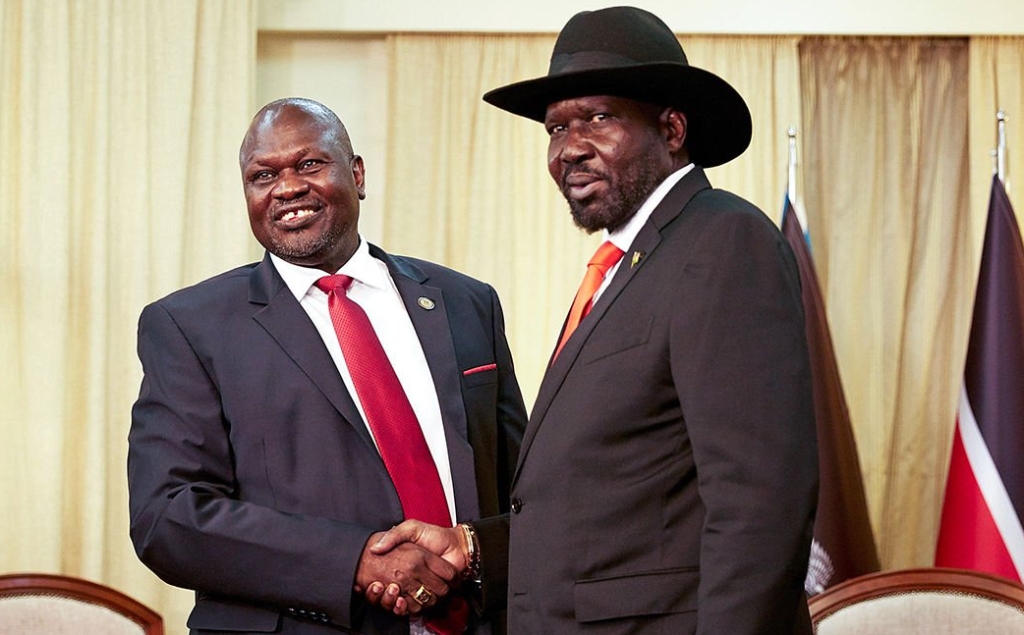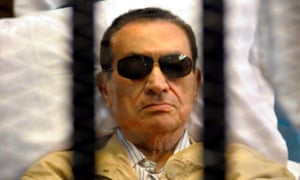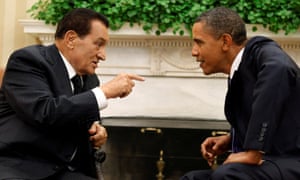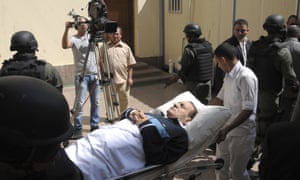The complex and sometimes hostile relationship of the Eritrean and Tigrayan authorities appears to have hit another low.
An official statement from the Tigray People's Liberation Front (TPLF) [below] contained strong warnings for President Isaias. He was told not to interfere in Ethiopian affairs.
Esteemed People of Eritrea,
The people of Tigrai and TPLF have never wavered or compromised on the quest of the Eritrean people for freedom. As a result of the sacrifices we jointly made, we won over the brutal Dergi regime and achieved victory. You have determined your destiny and the people of Tigrai and the TPLF are, as always, proud of this achievement. Nonetheless, in the last 20 years we had been locked in an unnecessary conflict and we both paid dearly as a result. We all realize the scar this has left.
It should not be forgotten that the relationship between the TPLF and the Eritrean People's Liberation Front (EPLF) have been littered with periods of cooperation and conflict.
The EPLF helped the TPLF when the Tigrayan movement was first formed, with training and equipment. They then fell out over strategy and tactics, before cementing an alliance that resulted in their forces co-ordinating the capture of Asmara and Addis Ababa in 1991. Eritrean troops even provided Prime Minister Meles with security in the first months of his rule.
But bitter disputes have also characterised their relationship. The Eritrean closed the route into Tigray at the height of the 1984-85 famine, leading to thousands of deaths. PM Meles warned his Eritrean hosts not to 'scratch old wounds' when he came to celebrate the formal independence of Eritrea in 1993. And - of course - there was the tragic border war of 1998, sparked by a conflict over the village of Badme.
Now there is increasing tension along the Eritrea-Ethiopia border once more. The TPLF blocked the removal of heavy weapons and equipment by the authorities in Addis Ababa in January 2019. The Tigrayans feared renewed fighting along the border.

Tigrayans blocked military trucks from leaving Shire and Zalambessa, January 2019
There is now a war of words once more, while the land border between Eritrea and Eritrea is closed.
The bitter words from the TPLF were matched by President Isaias, during his recent interview on Eritrean television.
An extract of what President Isaias had to say is below. So too is an article on the current situation and comments from the commentator Rene Lefort.

Source: Borkena
TPLF leaders warn Eritrean president, solicit support from Eritrean People
TPLF leaders warn Eritrean president over what they call “interference in Ethiopian affair” while pleading to Eritrean people to forget the “scar” and work together for “mutual benefit.” Some express concern that TPLF could start war in Ethiopia
 Seyoum Mesfin. Photo credit : Tigray TV via BBC Amharic
Seyoum Mesfin. Photo credit : Tigray TV via BBC Amharic
borkena
February 17, 2020
Tigray People’s Liberation Front (TPLF) seized the 45-anniversary celebration as an opportunity to showcase the extent of militarization.
In over a week-long series of events leading to Yekatit 11 (February 19), the day ethnic Tigray Nationalist political organization launched the armed struggle in the wilderness of Dedebit against the military government of Colonel Mengistu Hailemariam, military parades have been the centerpiece of the anniversary celebration. Some ethnic Tigray opposition figures were warning that TPLF could start war.
The organization has issued a statement on the occasion. Its heading reads “TPLF Official Statement on the Occasion of the 45th Anniversary of the Launching of the Armed Struggle of the People of Tigrai, 11 Lekatit 2012 Ge’ez C.(February 19, 2020).” Noticeably, Ethiopian calendar is used but it is described as “Ge’ez C”-the way it is referred to as in Eritrea.
The statement made a reference to the 17 years of armed struggle without any support from elsewhere:“”The people of Tigray endured the tough and costly journey with extreme forms of commitment and without asking for any external support, alternate partner, or pause.” Often, TPLF used to say that “all Ethiopians struggled to overthrow Fascist Derge regime.”
Then it goes to condemn what it called “parasitic decadence that occurred within the EPRDF in the last 3 to 4 years” – a reference to the reform measures after TPLF lost power following a pervasive and sustained protest in the country. And the narration was to the “Esteemed People of Tigrai” and “Esteemed Members of the TPLF”
It also painted an image of the imminent disintegration of Ethiopia due to policy measures of the political force that is currently holding power. “In the last couple of years, the country has suffered from heinous violations of law and unfolding crisis, and now it is on the verge of disintegration,” it said.
Under Prime Minister Abiy Ahmed, says TPLF, “the country has become a playing field for all sorts of external actors.”
After soliciting support from a different section of the population apart from TPLF members and people of Tigray, the statement lastly pleaded to the people of Eritrea. “The people of Tigrai and TPLF have never wavered or compromised on the quest of the Eritrean people for freedom. As a result of the sacrifices we jointly made, we won over the brutal Dergi regime and achieved victory… Nonetheless, in the last 20 years we had been locked in an unnecessary conflict and we both paid dearly as a result. We all realize the scar this has left.”
And what TPLF wants is for the people of Eritrea to “revitalize mutual benefit…, and advance towards an era of mutual development.”

The message for the Eritrean president is different. And it is not in the statement. In an event organized as part of the anniversary, leading TPLF leaders like Seyoum Mesfin, who has served as foreign minister for a long time, complained that the Eritrean president is interfering in the internal affairs of Ethiopia.
Tsegaye Berhe, another prominent TPLF leader, said t “If Isaias interferes in Ethiopian internal affairs, his hands will break, but he will bring about nothing,” as reported by BBC Amharic on Monday.
In an interview with Eritrea’s national TV, president Isaias indicated in the situation in Badme is worse after the peace agreement with Ethiopia, and that is because of TPLF leaders who are not willing to cede it to Eritrea.
Tigray People's Liberation Front/TPLF/
Source: TPLF

TPLF Official Statement on the Occasion of the 45th Anniversary of the Launching of the Armed Struggle of the People of Tigrai, 11 Lekatit 2012 Ge’ez C.(19 February 2020)
******************************
We are celebrating the 45th anniversary of the launching of the armed struggle of the people of Tigrai against the then prevailing enormous oppression, discrimination, and violence in our country, Ethiopia.
When we do so, we renew our promise to move forward with greater fortitude by remembering the past commitment and various achievements of the people of Tigrai and by charting our future with better clarity and stamina.
When the people of Tigrai resorted to raising arms, it was well-aware of the consequences of such an engagement in terms of human, material, environmental, psychological, and all sorts of sacrifices. Yet, it was left with no option but to pursue it to realize its noble cause. The people of Tigrai waged the armed struggle to eradicate, once and for all, the yoke of oppression it, particularly, and the subjugated Ethiopian nations, nationalities, and peoples shouldered and to establish a democratic and inclusive federal system of governance in its place. It, moreover, envisioned sustainable peace and affluent economy from which everyone benefits based on mutual respect, self-rule, equal participation, equity, self-rule, and self-determination.
The people of Tigrai endured the tough and costly journey with extreme forms of commitment and without asking for any external support,alternate partner, or pause. After paying colossal price in all its forms, the people of Tigrai eventually managed to remove from power the absolutely-anti-democratic and fascist Dergi/WPE regime that was the vanguard of poverty, backwardness, and all forms of discrimination and violence, and open a new and brighter chapter in the history of this country. Following the downfall of the Dergi regime and saving the country from the verge of collapse, the people of Tigrai played an indispensable role in inaugurating a constitutional system in which all nations, nationalities, and peoples of the country and all political forces participate equally. After the promulgation of the Constitution, the people of Tigrai played its unreserved positive role so that such a globally exemplary multinational federal system of governance is built and an inclusive, democratic, and renewed Ethiopia is established. Consequently, a system that guarantees self-rule and an equitable participation at all tiers of government, including at the federal level, of those who suffered from within and outside; those who were forced to be ashamed of who they are or what they profess, wear, or eat for centuries; those who were discriminated because of their identity, was realized. Such unattended burning demands of Ethiopians that lasted for decades or even centuries as the right to self-determination, ownership of land, popular sovereignty, and all democratic and human rights are addressed by the Constitution.
In this new chapter of history, developmental democracy, a path that halted Ethiopia’s hurtling descent and paved the road for advancement was introduced. Our country, Ethiopia, has registered tremendous and shining successes by following this befitting path to overall development. A country otherwise known for aid dependency has joined the club of the few fastest growing economies in the world. And this was sustained for about two decades. The country is able to realize, with its own resources, mega projects that were never heard of nor attempted before in the land. As a result of the achievement of fast and equitable development, millions of citizens are uplifted from abject poverty every year. Peace and security was maintained; sovereignty of the country was ensured; positive image and acceptability of the country and its positive influence regionally and globally was greatly enhanced. Similar outstanding achievements are visible in the social sector including but not limited to health and education as well as infrastructure development.
Thus, the 27 years before the advent of the so-called change in Ethiopia were years of freedom from the yoke of oppression and discrimination, accelerated development, peace, democracy, and generally glowing renaissance; unlike the claim of the naysayers that they were years of darkness.
Esteemed People of Tigrai,
Esteemed Members of the TPLF,
Developmental democracy, which was the mother of all the great achievements in Ethiopia in the last decades, is now being challenged by parasitic decadence that occurred within the EPRDF in the last 3 to 4 years. As a result, the peace that reigned in this country is now stained; the fast economic growth is halted; the democratization process is endangered. The TPLF did everything it could to save the system by strongly fighting the parasitic decadence within itself to no avail because the other sister parties in the EPRDF failed to do so and the decadent forces prevailed in holding key positions within the EPRDF following the latter’s leadership reshuffling in March 2018. The new leadership that represented the decadent elements of the EPRDF and that came through duplicitous schemes completely sidelined developmental democracy, resorted to autocracy, and joined the camps of rent seeking and parasitism that the EPRDF identified as a danger to the system and the country and warned against years back during its deep renewal. Now, they are out there in their worst forms for everyone to observe. In the last couple of years, the country has suffered from heinous violations of law and unfolding crisis and now it is on the verge of disintegration.
Institutions and institutionalism are being destroyed. Reversal of the country’s achievements accompanied by monstrous violations and actions in both the economic and the political fronts are prevalent. The Constitution, which is the only reliable savior of the country, is violated and rule of law is endangered; the multi-national federal system is being shattered in day light; a long sustained peace is sullied; unity of the people is deeply wounded; development is halted; integrity and sovereignty of the country is scorned, as never witnessed in Ethiopia’s history, and the country has become a playing field for all sorts of external actors: be they strong or feeble. Because of this, the very existence of the country is endangered in a more disastrous way than ever. The result has so far been for citizens to lose their life and property just for belonging to a certain identity or group; the prevalence of worst forms of violence and illegal evictions; extra-judicial killings of top military leaders who had spent their entire lives safeguarding the country; turning universities from premises of education and research to compounds of turmoil and uprisings; the loss of student lives and kidnapping of citizens including students has become a daily occurrence.
Furthermore, the party that controlled state powers legally and that brought about development, peace, and rule of law to the country- the EPRDF - is demolished following the betrayals and absolutely anti-democratic and illegal actions of the other sister parties and replaced by a newly and illegally established so-called prosperity party. The TPLF and its members are being purged from federal and Addis Ababa offices despite the fact that the EPRDF is yet the legal incumbent party all over Ethiopia and its term is yet to expire come next September. Anti-democratic actions, abductions, insecurities, and threats have taken absolute prevalence in the country; the political ecosystem has become so restraining; political parties, journalists, and individuals who promote different ideas from the so-called reform agenda are being attacked, abducted, and imprisoned.
Esteemed People of Tigrai,
Esteemed Members of the TPLF,
Though the political situation in the country at the moment is challenging, our organization, the TPLF, is doing a commendable job in curbing the threats that are coming from all corners by relying on its popular goals, experience, and internal strength. It is confronting the forces of chauvinism so that rule of law and order prevails in the country. It is particularly waging a frontline resistance, as always, so that the survival and security of the people of Tigrai is guaranteed at any time and place. Haphazardly gathered chauvinists are launching a fight by creating a front to rollback the Tigrai people and TPLF’s efforts to maintain the multi-national federal system, rule of law and order, and defend citizens particularly Tigraians from attacks. They are leaving no stone unturned to intimidate the people of Tigrai and its leading organization, the TPLF. The defeated chauvinists are working relentlessly to maximize the ‘window of opportunity’opened for them by traitors from within the EPRDF to smash the people of Tigrai and consign it to subjugation and oppression once again.
Nonetheless, our people have no wish nor interest to pay back in kind; our people do not uphold the eye-for-an-eye thinking. Our goal is to bring about development and compensate the losses suffered by our people as a result of long sustained and imposed backwardness, wars, and dismal poverty. We keenly understand that the survival and security of the people of Tigrai is determined by the successes we attain in the overall development endeavors, the transformation we achieve in the area of good governance, and by the triumph we register in the area of sustainable peace and security. Our agenda is nothing but peace, development, democracy, and to struggle to maintain the multinational federal system that is based on equality and that provides equal chance to all peoples of Ethiopia.
We urge all stakeholders to note that the efforts to derail us from our noble causes by trying to intimidate, encircle, and subdue our people and their leading Organization will bear no fruit. Let alone in these days, it was impossible to silence the people of Tigrai in the earlier days through indiscriminate attacks and famine. We will surely overcome whatever challenges we are facing and never go downhill and eventual victory is certainly with us as we are waging a just struggle.
Esteemed People of Tigrai,
As always, you are pursuing a just struggle by upholding your noble cause and committing yourself to the maximum extent possible by siding with your leading Organization and with utmost clarity of thoughts without being distracted by those who tried hard. You are marching forward without loosening your grip on your goals and renewing and strengthening your leading Organization on the way. You are moving forward by upholding your principled treasures and displaying exemplary roles without being sidetracked by challenges and provocations. Your Organization, the TPLF, immensely respects your struggle and countering the aggressions that manifest themselves in different forms. There is no doubt that the challenges could reappear by changing their forms. The chauvinists and their partners hell-bent on destroying the country are frustrated by the iron-strong unity of our people are working hard to infuse division within the people of Tigrai by allocating huge public resources including government offices as an enticement to few traitors and by resorting to such issues as localism, religious fundamentalism, and exaggerating certain governance-related demands and questions. They are expected to fabricate such conspiracies in the future as well. Our people will also steadfastly hold onto its time-tested wisdom and capacity of separating the wheat from the chaff, and throwing away the latter to the dustbin of history. You should fight against those who want to endanger your survival and security from within and outside like a stinger.
By recognizing the plain fact that your survival and security is guaranteed by the overall struggle you undertake, you must pursue your development endeavors in more vigorous ways; struggle against anti-peace and anti-development thoughts as well as inclinations; administer your resources wisely; save; refrain from wasting your properties and resources; guard your peace; scan your lands lest traitors set foot on it; get organized and strengthen your overall struggle; your Organization, the TPLF, will always stand shoulder to shoulder with you in all your struggles against all forms of aggressions. The TPLF Central Committee appreciates and respects the overall struggle and commitment so far and calls upon the people to get ever ready for further struggle and victory.
Esteemed Members of the TPLF,
The chapter of the struggle we are in is different in substance and form from anything we experienced in our history. On one hand, because of the extraordinary betrayal of those once who struggled with us, the EPRDF is demolished illegally and undemocratically. And this has left the TPLF as the only organization among members of the EPRDF to defend developmental democracy and all attacks against this path from within and outside are geared towards the TPLF. Yet, our people are heroically defending against the attacks and we call upon our people to further strengthen their resistance. On the other hand, we call up on our people to pursue, with utmost sense of urgency, organization, and in a manner that compensates losses that we may have incurred as a consequence of previous inefficiencies on the agenda of peace, development, democracy, and ensuring justice that we launched anew in our State.
Esteemed Families of Martyrs, Disabled Veterans, Fighters, and All Accumulated Human Resources of Our Struggle,
Your organization, the TPLF, duly notes that you are infuriated by the fact that the peace, democracy, and development that prevailed and started to thrive in the country because of your sacrifices are once again endangered. And you are struggling with exemplary steadfastness to maintain the system and the popular causes by setting aside the many pressing and legitimate, yet unattended, demands that you have. There is no option in the future too but to scale up your struggle in an organized manner. As you did it in yesteryears, your Organization, the TPLF, calls upon you to make history again in defending our people against current as well as anticipated attacks by siding with your people and leading organization and byutilizing the tremendous experiences you have accumulated.
Esteemed Youth of Tigrai,
As we once reiterated “when hard times befall, you should not betray the responsibilities assigned to you by your forefathers”, you are conducting a reasonable struggle and you contributed not only for Tigrai but also you are doing a proud job to alter the balance of politics in the country. You are making a new golden history on the top of the history of your forefathers. Your organization, the TPLF, is proud of your contributions. We are confident that you will foil all sorts of conspiracies that may occur in the future that aim to sow division within your people through your strong organizations and high-level of awareness. Your organization, the TPLF, will stand with you in your struggle to defend your people and resolve your all-rounded challenges.
Esteemed Women of Tigrai,
During the armed struggle, you made history by winning against all odds and by displaying extreme forms of commitment that history will never forget and by shouldering double oppression. You have made similar proud history in building a democratic system of governance and bringing about development. You are also engaging in defending your people with high levels of commitment like a Tigress defending her new born. Your Organization, the TPLF, highly appreciates your contribution so far. We are confident that you will make similar history in our all-rounded struggle in the future. Your organization, the TPLF, assures you that we will work together with the highest possible attention to address the multifaceted challenges you face.
Esteemed Scholars and Business Community of Tigrai,
It is known that your contribution in the fight to eradicate poverty and backwardness in all its forms was tremendous. You are committing your knowledge and resources to overcoming the current challenges by taking full responsibility and standing with your people. We highly appreciate your contributions so far and the Central Committee of the TPLF calls upon youto maximize all the opportunities and give all what you can to benefit your people and win over the challenges.
Esteemed Tigrai Community Residing Abroad,
Standing with your people and your organization, the TPLF, you have made unforgettable history by contributing through your knowledge, money, and life sacrifices during the armed struggle. After the completion of the armed struggle, you have been contributing what is expected of you so that overall peace and development reigns in the country. Similar to what you have done in the past, you are struggling with full commitment and unity to overcome the challenge faced by your Organization, the TPLF, and the people of Tigrai. The TPLF Central Committee highly appreciates your contributions so far and calls upon you to scale up your struggle to an even higher level and stand with your people in their endeavor to defend their noble cause.
Esteemed Opposition Parties and Civic Associations of Our State,
Opposition parties and civic associations in our State, you certainly understand that you are the fruits of 11 Lekatit. We understand that your contribution to the prevalence of peace, development, and building democracy in our State is substantial. TPLF particularly appreciates those of you who are struggling to ensure the survival and security of the people of Tigrai and those of you who are working hard to overcome the challenges faced by the people of Tigrai. We are hopeful that you will stand with your people in the future struggle as well and prove so practically, without being influenced or challenged and the TPLF vows to support your struggle.
Esteemed Forces of the Constitution and the Multinational Federal System,It is recorded in history and you are well aware of the sacrifices paid by the people of Tigrai and its leading organization, the TPLF, to create advanced, democratic, sovereign, and peaceful Ethiopia in which all the nations, nationalities, and peoples participate on equal basis. The rule of law, peace, and federal system of governance that were the results of heavy sacrifices are now being violated and the country is descending to disintegration. The continuity of the country is guaranteed only when the Constitution and the federal system of governance are respected. Thus, we assure you that TPLF will work with you in strengthening and scaling up the struggle you have already begun to save the Constitution and the multinational federal system.
Esteemed Nations, Nationalities, and Peoples of Ethiopia,
Through our common struggle and the sacrifices we made, we have succeeded in building a country that benefits all of us and ensures our equal participation. Nonetheless, this right that was achieved through your struggles and sacrifices is now endangered by forces of chauvinism. We are living witnesses and we can see from the reality on the ground that violating the Constitution and the federal system of governance will lead us to disintegration and apocalypse. TPLF calls upon you to struggle together, as we did earlier, to save the Constitution and the federal system of governance.
Esteemed People of Eritrea,
The people of Tigrai and TPLF have never wavered or compromised on the quest of the Eritrean people for freedom. As a result of the sacrifices we jointly made, we won over the brutal Dergi regime and achieved victory. You have determined your destiny and the people of Tigrai and the TPLF are, as always, proud of this achievement. Nonetheless, in the last 20 years we had been locked in an unnecessary conflict and we both paid dearly as a result. We all realize the scar this has left. Now, the TPLF calls upon you to once again revitalize our mutual benefit, history, and relations, and advance towards an era of mutual development.
MesmernaAtseni-inaNimekete! (Let’s holdfast to our principled path in our resistance!)
Eternal Glory to Our Martyrs!TPLF Central Committee
Lekatit 2012/February 2020
Meqhele
Commentary by Rene Lefort
Source: Tweets
1. The last “TPLF official statement” is not only surrealistic, but terribly damaging for the Front and the so-called “democratic transition”: it discredits itself and accentuates its “bunkerisation” by its own.
2. During 27 years, Ethiopia lived in a paradise. “Years of freedom from the yoke of oppression and discrimination, accelerated development, peace, democracy, and generally glowing renaissance… A globally exemplary multinational federal system of governance”.
3. But then Ethiopia shifted to the hell. The evils? The classical “anti-peace, anti-development, chauvinist, rent-seekers” elements, but now the “traitors” pushing for a “parasitic decadence”, etc. etc. In this listing, the famous “lubricious vipers” only are missing…
4. Through their “monstrous violations”, they have “completely sidelined developmental democracy, resorted to autocracy, and joined the camps of rent seeking and parasitism”, “destroying the country” and putting it “on the verge of disintegration”.
5. What happened in between? Despite “the TPLF did everything it could to save the system… decadent forces prevailed in holding key positions within the EPRDF”. Full stop. Why? Absolute silence about anything else.
6. There was not even the shadow of a tiny cloud in this former haven. Millions of people raised up for years against authoritarianism, oligarchic capture and a biased federalism, among others? The country plunged into an existential crisis? These basic facts are simply set aside
7. Finally, the TPLF “assures… it will work with the esteemed Forces of the Constitution and the Multinational Federal System”. The TPLF harshly repressed them for years. How could they take this appeal as credible when the Front describes these years as a golden age?
8. The content and the form of this statement are firmly against TPLF’s leadership positions heard two months ago in Mekele. They were realistic, open minded, in one word rational, and even self-critic. Has the Front recently made a U-turn?
9. This Manichean and blind statement is either a calamitous propaganda exercise or, if it expresses the Front’s actual position, the TPLF is not only shooting itself in the foot but also damages even more a transition already in a very perilous way.
![]()
 Africa Monitors
Africa Monitors  Eritrean Diaspora in East Africa (EDEA)
Eritrean Diaspora in East Africa (EDEA)  3) Eritrean Movement for Democracy and Human Rights (EMDHR)
3) Eritrean Movement for Democracy and Human Rights (EMDHR)  Horn of Africa Civil Society Forum
Horn of Africa Civil Society Forum 



 Download infographic (PDF | 395.59 KB)
Download infographic (PDF | 395.59 KB) 

 Seyoum Mesfin. Photo credit : Tigray TV via BBC Amharic
Seyoum Mesfin. Photo credit : Tigray TV via BBC Amharic

